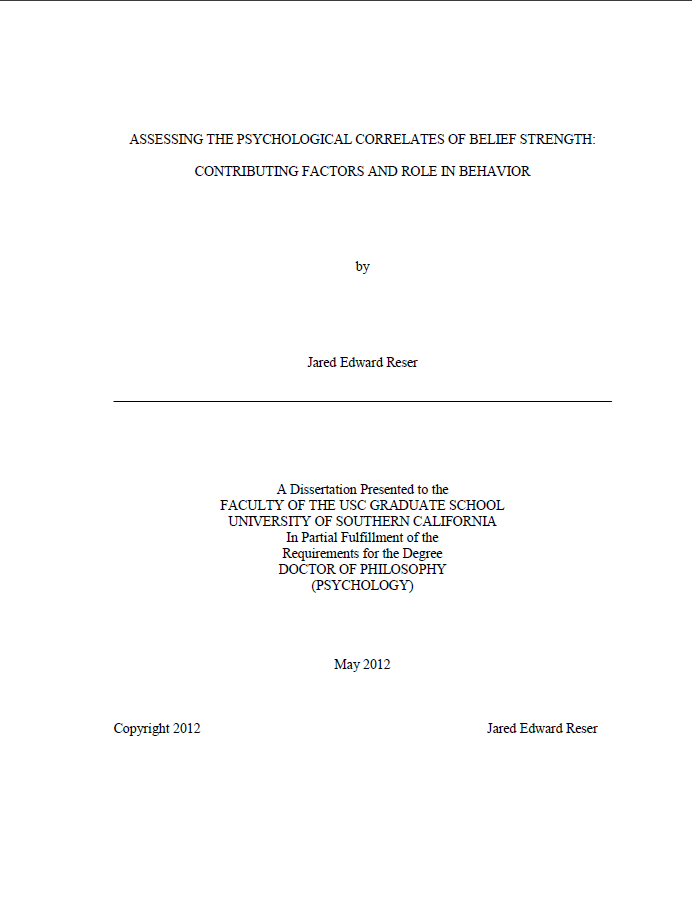
Published by UMI Proquest in 2012
Cite As:
Summary
Abstract
This dissertation examines the psychological foundations of personal belief by conducting a review of classical and contemporary thought about belief, by hypothesizing about ways to conceptualize belief and by presenting new evidence about belief from empirical studies. Two studies measured the contributions of various constructs to belief strength in an effort to examine the determinants and functions of personal belief. Study 1 collected data from over 250 child-parent pairs regarding how beliefs are formulated. Participants rated their strength of belief in statements relative to the following determinants: the importance of substantiating evidence, the perceived logic inherent in a belief, the importance to self-identity, the influence of parents, the social community and authority figures.
Study 1 found that strength of certainty can be best predicted by one’s estimate of their family member’s belief, the quality of empirical evidence that the person can offer to support the belief, and the perceived importance of the belief to their sense of self-identity. Study 2 investigated whether people’s weight management beliefs predicted diet and exercise behaviors and whether these behaviors in turn predicted BMI. These expected results were strongly supported by the data gathered from 996 participants, who responded to a questionnaire, reporting their height, weight, beliefs about various aspects of weight management, and personal weight-management behaviors, including exercise activities and eating habits. Overall, 40% of the variance in BMI within our sample, including 49% of the variance in BMI in individuals older than 25, could be predicted by a combination of health beliefs and their associated eating and exercise behavior.